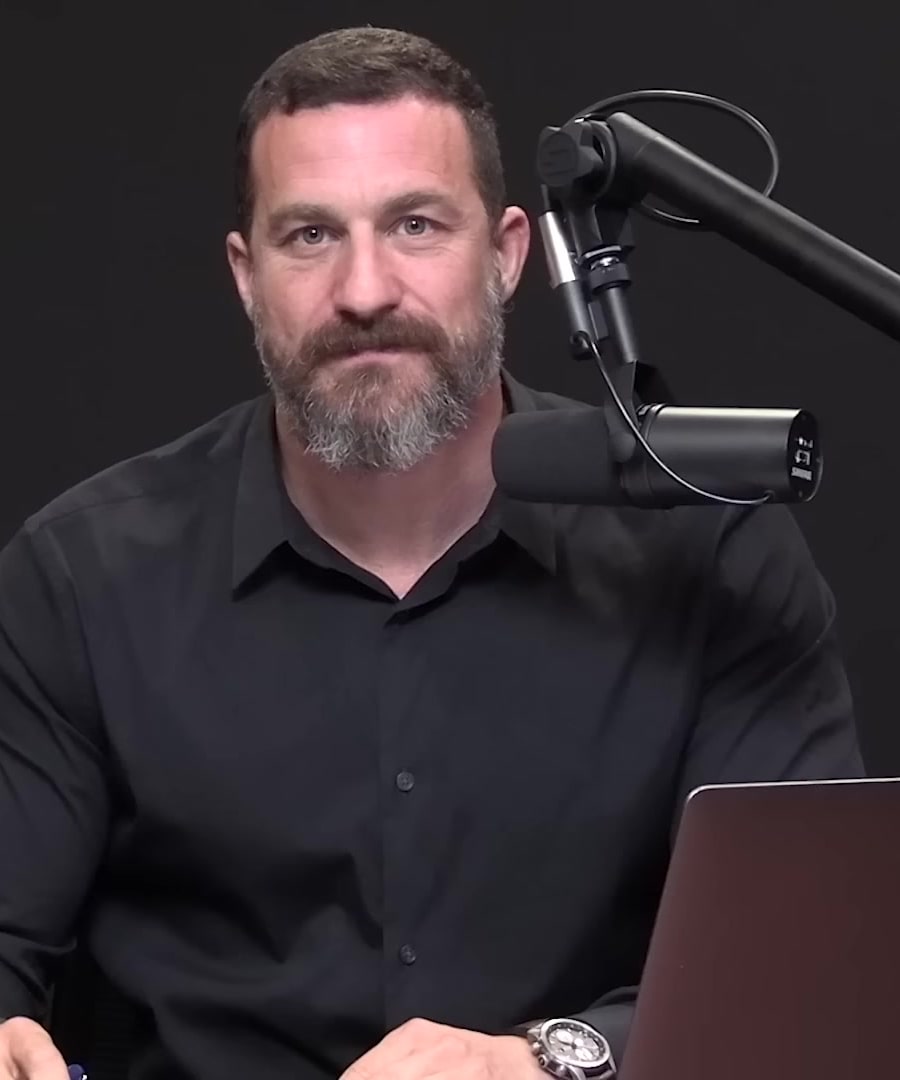i heard intermitten fasting may not be good for you is that true?
Sources:
Intermittent fasting has both supporters and critics among experts, with different opinions based on its effects on health, muscle mass, and weight loss.
According to Layne Norton and , fasting cannot be argued to be anabolic, and it isn't anti-catabolic either. Extended fasting can induce catabolism in skeletal muscle. They debate that fasting for too long, such as 16-8 fasting, might not maintain or build lean muscle mass as effectively as regularly spaced meals with adequate protein intake, especially over the long term. For someone aiming for maximum muscle growth, other strategies might be more effective 1.
, an expert in the field, criticizes the term "intermittent fasting" for being vague and emphasizes the need for precise terminology regarding fasting practices. He points out that certain fasting habits, like skipping breakfast or fasting beyond 12 hours daily, are associated with higher risks, such as needing gallbladder removal, increased cardiovascular disease, or overall mortality 2.
In the context of sleep, states that while intermittent fasting might be a healthy practice that promotes autophagy, it may also lead to shorter and more fragmented sleep. This is not a sustainable state, as chronic short sleep can ultimately shorten life span and degrade overall wellbeing 3.
Additionally, experts like don't encourage intermittent fasting, arguing that it takes away from one's intuition about what the body needs. Others, like , see no physiological benefit to intermittent fasting but consider it a valuable tool for breaking psychological patterns related to food, such as anxiety eating or a fear of skipping meals. However, he also warns that fasting may not be suitable for individuals with high stress, hormonal imbalances, or past issues with food like anorexia 4, 5.
Finally, points to research showing that restricting feeding to a certain window can have benefits such as improved liver enzymes and insulin sensitivity. However, he notes that, in terms of metabolism and even weight maintenance, the total caloric intake vs. expenditure is what ultimately matters, regardless of eating frequency or pattern 6.
Overall, while intermittent fasting may have certain benefits for some people, experts suggest that there can also be negatives, especially if it’s not practiced correctly or if it is not suited to the individual's health status, lifestyle, or nutritional needs. It is recommended to approach intermittent fasting with care and potentially under guidance from a healthcare provider.
RELATED QUESTIONSSummarize 126: Matthew Walker | Unlocking the Power of Sleep and Dreams
Sources:
In the with neuroscientist and sleep expert , they discuss various important aspects of sleep and its impact on our lives. Here are the key points discussed in the episode:
-
Sleep and Emotional Intelligence: When deprived of REM sleep, our ability to discern subtle emotions deteriorates, putting us at an evolutionary disadvantage. This impairs our interactions in business, relationships, and critical situations like those faced in medicine or the military 1.
-
Sleep as a Non-Negotiable Biological Necessity: Dr. Walker emphasizes that sleep is crucial for health and wellbeing. He warns of a silent sleep loss epidemic that detrimentally affects public health, safety, and children's education. He argues that sleep is not a luxury but a fundamental biological need 1.
-
The Myth of Sleep Debt: The episode debunks the idea that one can 'bank' sleep, explaining that you can't accumulate a debt and pay it off later. Social jet lag, where one short sleeps during the week and tries to catch up during the weekend, is particularly harmful as it disrupts our biology akin to constant transcontinental travel. However, some recovery sleep can help, but with caveats 2.
-
The Role of REM Sleep: REM sleep helps to separate emotion from memory, acting as a form of overnight emotional therapy, particularly important in conditions like PTSD. A failure of this process in PTSD leads to repetitive nightmares and disrupted sleep. Drugs that lower noradrenaline in PTSD patients have been used successfully to treat these symptoms 3.
-
Understanding Sleep Hygiene: The episode covers practical tips for better sleep, including limiting blue light exposure, wearing blue blockers, avoiding alcohol, understanding caffeine's half-life, and setting a consistent sleep schedule 1.
-
Sleep's Impact on Decision-Making: Adequate REM sleep is critical for gauging emotions accurately, which is vital for assessing trustworthiness and intentions in others. Insufficient REM sleep can lead to poorer decision-making in these areas 3.
In summary, the episode brings forth Dr. Matthew Walker's expertise on sleep, providing insights into how inadequate sleep affects our emotional intelligence, the misconception of sleep debt, the essential role of REM sleep, and the importance of adopting healthy sleep habits.
RELATED QUESTIONS-
List clips similar to "Intermittent Fasting and Sleep"
Sources:
Here is a list of clips that address potential intersections between sleep patterns and intermittent fasting:
-
"Intermittent Fasting and Sleep" by discusses the impact of intermittent fasting on sleep, suggesting sleep may become shorter and more fragmented, potentially leading to a supercharged version of sleep that isn't sustainable over time 1.
-
"Sleep-Related Fasting" by focuses on the benefits of fasting tied to sleep, including enhancements in the brain's clearing out process during fasted states and recommendations for feeding timing related to sleep 2.
-
"Diet and Sleep" featuring assesses the relationship between diet, fasting, and their combined effects on sleep quality, including insights on the release of melatonin during fasting periods like Ramadan 3.
-
"The Power of Sleep" shares insights from on the interplay between fasting, gut health, and sleep, highlighting the anti-aging impact of natural human growth hormone released during sleep 4.
-
"Intermittent Fasting" by provides an overview of the historic and health perspectives of intermittent fasting, and its potential to prolong life by preventing age-related diseases 5.
-
"Ideal Intermittent Fasting" by outlines an approach to intermittent fasting that integrates sleep and eating patterns for optimal health and weight management 6.
-
"Food Timing and Sleep" outlined by Diane Macedo, explores the concept of food timing and intermittent fasting as strategies to reset the body clock and improve circadian rhythms, with a focus on managing cravings through healthy sleep and eating habits 7.
-
"Circadian Intermittent Fasting" with emphasizes the importance of circadian alignment in intermittent fasting practices to improve cravings, hunger pathways, and brain-gut health 8.
Each of these clips offers insights into how intermittent fasting can interact with sleep patterns, the physiological benefits or drawbacks, and practical approaches to integrating fasting into daily routines.
RELATED QUESTIONS-







